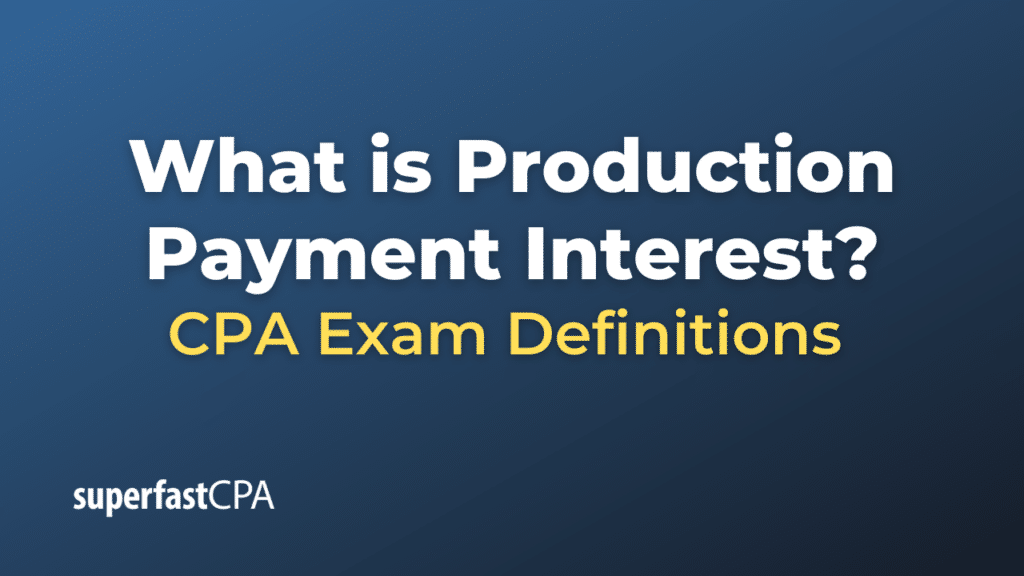Production Payment Interest
Production payment interest refers to a type of agreement in the oil and gas industry in which an investor pays an upfront amount to a producer in exchange for a percentage of the revenue from a specific producing property until a predetermined payout amount is reached.
The payment interest is often defined in terms of a specified volume or value of the oil or gas produced, or a specified period. It’s a non-operating interest, which means the holder of a production payment interest does not bear any of the costs of drilling, operation, or maintenance, and their interest expires once a specified amount of production is delivered or a specified sum is paid.
Such arrangements can be beneficial for both parties. For the investor, it provides an opportunity for a return on investment based on the property’s production. For the producer, it offers a method to finance operations or other business initiatives without incurring debt or diluting equity ownership.
However, it’s important to note that there are risks associated with such agreements, primarily the uncertainties related to oil and gas production volumes and prices. Legal and regulatory complexities can also arise, so it’s crucial to seek expert advice when entering into such agreements.
Please note that this description pertains to the common definition of production payment interest as used in the United States. Different jurisdictions may have different definitions and regulations regarding production payment interests.
Example of Production Payment Interest
Imagine a small oil and gas company called “ExtractionCo,” which owns and operates an oilfield. ExtractionCo wants to drill additional wells to increase production but lacks the necessary capital to finance this operation.
To raise the funds, ExtractionCo decides to sell a production payment interest in one of its currently producing wells to an investor. They agree on terms where the investor pays ExtractionCo $5 million upfront. In exchange, the investor is entitled to 10% of the revenue from the oil produced by the well until the investor has received a total of $6 million from the production. The $6 million total represents the original investment plus a return.
ExtractionCo benefits from this arrangement as it gets the capital it needs for its expansion project without incurring any debt or having to sell equity in the company. On the other hand, the investor stands to make a return on their investment from the revenues of the oil production.
However, the investor’s return is dependent on the well continuing to produce as expected, and on the price of oil remaining stable or increasing. If production falls or if the oil price drops significantly, it might take longer for the investor to receive the total payout, or they might not recoup their investment in the worst case.
This example highlights the typical structure of a production payment interest agreement. However, the exact terms and conditions can vary widely depending on the specific situation and the negotiation between the parties involved.












